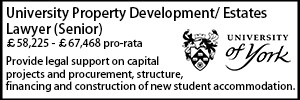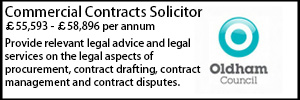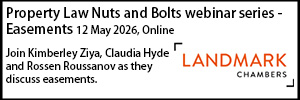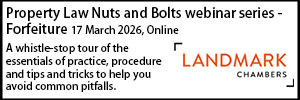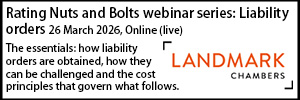Supreme Court to hear appeal by Welsh council next week in Japanese knotweed case
- Details
The Supreme Court will next week hear a council’s appeal of a Court of Appeal judgment which overturned lower court rulings that found diminution in value in Japanese knotweed cases was irrecoverable economic loss and ordered the council to pay damages to a property owner.
The issue in Davies (respondent) v Bridgend County Borough Council (appellant) is whether the lower courts were correct to decide that loss suffered by the respondent (Davies), in the form of diminution in value of the respondent's property as a result of the encroachment of Japanese knotweed from the appellant council's land, was caused by the appellant's breach of duty in failing to treat the knotweed, in circumstances where the encroachment first arose before the appellant's breach.
The background to the case is that Japanese knotweed grew on Bridgend CBC’s land. It encroached onto adjacent property in Nant-y-moel, Bridgend. In 2004, the respondent, Davies, bought the property.
In 2012, a Royal Institute of Chartered Surveyors report on knotweed was published, describing difficulties it can cause.
The appellant council had actual notice of the presence of knotweed on its land, in relative proximity to the adjacent property, in 2014. It did not take steps to treat it until 2018.
The respondent first became aware that knotweed could pose a problem for any sale of their property in 2017. He sued Bridgend CBS for damages in nuisance.
The District Judge found that:
- it was very probable encroachment had occurred in 2004, if not before;
- the appellant council had constructive knowledge of Japanese knotweed based on information available at the time in 2012/13; and
- the appellant was in breach of its duty to the respondent, thereby committing a private nuisance, from 2013 until 2018.
The respondent's claim failed before the District Judge and Circuit Judge but succeeded on appeal to the Court of Appeal in Davies v Bridgend County Borough Council [2023] EWCA Civ 80.
The council appealed to the Supreme Court.
A panel comprising Lord Reed, Lord Lloyd-Jones, Lord Burrows, Lord Stephens and Lady Simler will hear the case over 1.5 days on 27 February 2024 and 28 February 2024.
Sponsored articles
Walker Morris supports Tower Hamlets Council in first known Remediation Contribution Order application issued by local authority
Unlocking legal talent
Legal Officer
Senior Solicitor - Property
Legal Director - Government and Public Sector
Locums
Poll


























